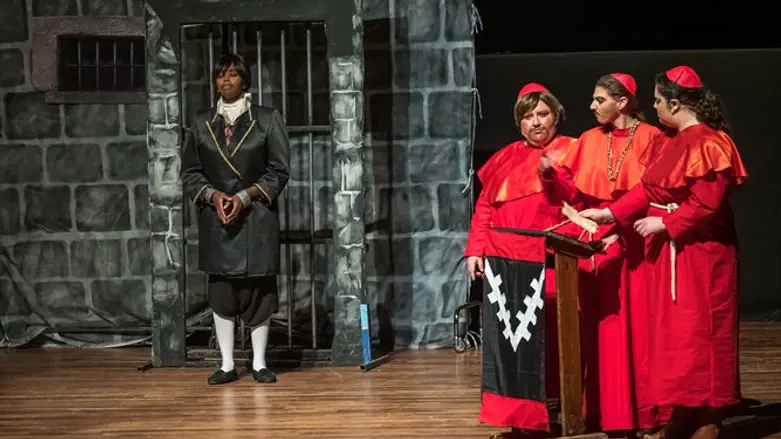
One of the most tragic yet fascinating chapters in Jewish history is the story of the Conversos in Spain and Portugal, Jews who had converted to Christianity, but who secretly continued to be loyal to Judaism, with unquestioning devotion to the faith of their fathers. If caught and exposed, they faced the terrors of the Inquisition, torture to gain information about other conversos and at the end, an Auto-da-fé at the stake, yet they remained steadfast in their faith, with courage beyond belief.
As generations passed, their knowledge of Judaism became more and more limited because there were no Jews for them to emulate in Spain after the 1492 expulsion of some 300,000 of their brethren who did not convert. It is claimed that today, as many as 60% of Spain's citizens have Jewish blood in their veins.
Many people do not realize that the Inquisition continued its cruel work against the conversos of Spain long after the rule of King Ferdinand and Queen Isabella, their evil Christian mentor Torquemada and Jewish finance minister Don Yitzchak Abarbanel who tried so desperately to prevent the expulsion.
In fact, the Inquisition went on for 500 years, well into the 18th century with continued auto-da-fes, torture and a network of inquisitor spies. It was a reign of terror where a chance word or a jealous neighbor could lead to exposure, torture and death.
Authors Sharon Katz and Avital Macales of The Women's Performance Community of Jerusalem and OU Israel spent two years researching, writing and rehearsing the musical play "Hidden, The Secret Jews of Spain" based on one of Marcus Lehmann's inspiring series of books for Jewish youth. The play, which has several more performances in Jerusalem, succeeds in creating the atmosphere of 18th century Spanish Jewry under the Inquisition by acting out the tale of the Aguilar family, a story of high drama and adventure, sorrow and final triumph.
Wisely, the women's group made sure to avoid trauma by not showing torture implements or actual deaths. Instead, they concentrated on achieving audience identification with the conversos, beginning the play with an emotional scene where, hidden in a basement, converso parents recite the Priestly Blessing with their hands on their childrens' heads, When they begin the solemn Kol Nidre prayer (in which conversos pleaded with G-d to forgive their vows of fealty to Christianity), they are interrupted by the signal meaning danger. The audience breathes an audible sigh of relief when the worshipers are not discovered and is thus caught in the spell of the Aguilar family's story.
After that, the scenes unfold with a fast-moving, intricate plot. The anti-Semitism and hatred of the Christians is absolutely palpable, Vengeful Fray Balthazar and his henchmen are thoroughly realistic, as is the fear felt by the conversos. But then so is their faith and feeling of continuity as Jews, and we empathize with their dilemmas, especially that of Inquisitor Diego Aguilar, while feeling his mother's desperation and hopelessness.
The music and vocals are excellent, especially the recurring and symbolic motif of the Shema prayer set to a haunting Sephardic-sounding tune. The choreography, authentic-looking costumes and changing scenery by means of projections on a screen are all top notch. Especially good are the scenes with the fearless bandaleros, the bloodthirsty crowds, and the children taken to a monastery. There is even a bit of unexpected humor here and there to lighten the atmosphere.
A large cast, ranging from young to old, means that the director succeeded in facing a real challenge. For the young actors, on the other hand, putting on the play was a learning experience in Jewish history whose resulting empathy no history lesson could possibly match. The audience, too, is drawn into the lives of the Jews, so, desperate to escape and knowing that there will be no mercy for them - and that makes up for some less polished moments in the performance. This is not a cast of acting school graduates, though it includes some outstanding professionals.
On the other hand, "Hidden," though riveting, is a bit too long, and I wonder if a few scenes, including even the Chupoah scene at the end, could be switched to reading from a narrative scroll instead of actual acting. The fact that the actors have a variety of accents, but only two sound Spanish, is noticeable at first, but becomes trivial as the plot unfolds and the audience is caught up in the suspense and emotion.
And one cannot help thinking, about the cyclical nature of Jewish history in the Diaspora. Are Jews once again reliving the Aguilar family story, waiting to leave their once welcoming but now virulently anti-Semitic homes until it is too late?